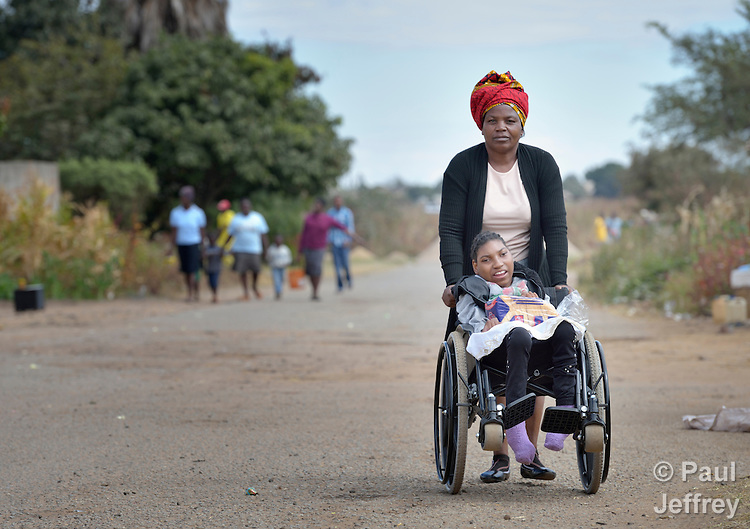The 280 members of the National Assembly consist of 210 members elected in single-member constituencies along with 60 women and 10 youth seats elected by proportional representation in ten seven-seat constituencies based on the country’s provinces. There are 1770 council seats. Voters cast a single vote, which is counted for both election forms. The 80 members of the Senate include 60 members elected from the ten six-member constituencies (also based on provinces)by proportional representation using the party lists. The lists must have a woman at the top and an alternate between men and women. The other 20 seats are reserved for People with Disabilities and for traditional chiefs.
People with disabilities have expressed concern and dissatisfaction with the voting criteria for Senators who represent the disability constituency with the view that it was limiting and was not fair in expressing the actual desires and feelings of the PWD community. Out of all elected Councillors, MPs, and Senators, only 2 represent PWDs, whereas PWDs are 15% of the country’s population. Are we, as Zimbabweans, saying only two people can represent people with disabilities and be their voice in Parliament?
The election of 2 Senators who will represent PWDs was held on August 26, 2023, by the 119 associations and institutions representing and assisting PWDs. The two elected senators to represent PWDs are Anna Shiri and Ishmael Zhou. There is a lack of full inclusion and fair participation through these criteria. It only allows a few people to decide the leaders who would represent a large number of PWDs in the whole country.
Admire Moyo, who lives with albinism, says PWDs should have representatives starting from the Council level. Councillors have an in-depth understanding of people’s needs as they stay with them in the same community. When one has a grievance, Admire says it’s easier to approach a Councilor who is probably your neighbor than to approach Senators or MPs.He suggested that, if possible, there should be Councilors who are also disabled so that the voices of PWDs can be heard starting from wards in our constituencies. Moreover, two representatives for 15% of people with disabilities in the whole country is not enough. More Senators should be appointed to represent PWDs. Hopefully, in the next election, we will see more of PWDs being represented in Parliament.

